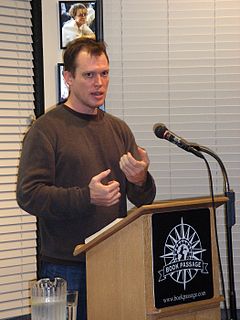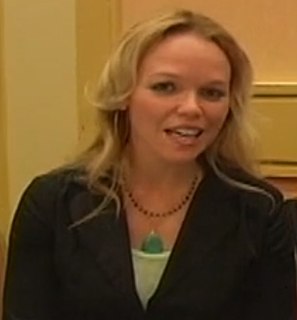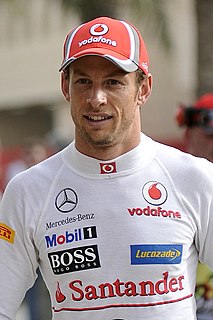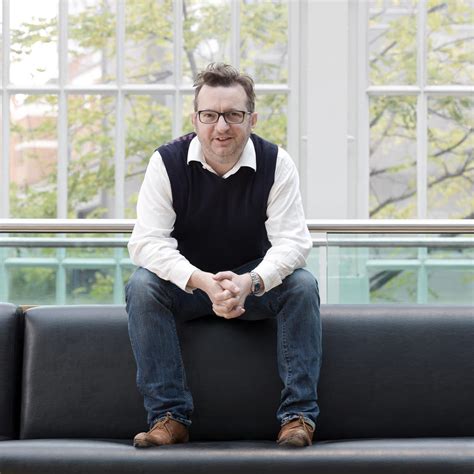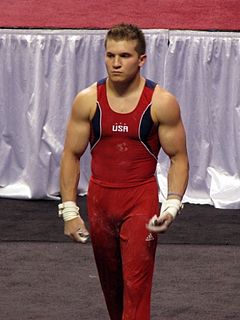A Quote by Anna Quindlen
What usually happens is that when I'm nearing the end of one novel a vague idea about what I want to do next begins to present itself to me in terms of theme. And I would say over about the next six to eight months, usually as I'm out power walking in the morning, or when I'm cooking at night, or when I'm driving in the car, the people who might embody those themes take on a sharper and sharper focus. And there comes this sort of critical mass moment when they actually start to do things in my head.
Related Quotes
For many years, I was a really heavy drinker, but people don't know about that because I'm by myself all the time. Recently, I didn't drink for eight or nine months, and I learned that alcohol was quadrupling the embarrassing moments - those moments when you're drunk and you say something you remember the next morning and feel embarrassed about.
Now I must live with the consequences of the choice I made. And I will not call it the wrong choice. That would be foolish and pointless. That choice led me to everything that has happened since, including this very moment, and the choices I make today or tomorrow or next week will lead me to the next and next present moments in my life. It is all a journey, Miss Jewell. I have come to understand that that is what life is all about-a journey and the courage and energy always to take the next step and the next without judgement about what was right and what was wrong.
Thus, the question of how and when to start vagabonding is not really a question at all. Vagabonding starts now. Even if the practical reality of travel is still months or years away, vagabonding begins the moment you stop making excuses, start saving money, and begin to look at maps with the narcotic tingle of possibility. From here, the reality of vagabonding comes into sharper focus as you adjust your worldview and begin to embrace the exhilarating uncertainty that true travel promises.
We go through the whole season working on next season's car and developing the car and making sure we fit in the car and all that sort of stuff. And we obviously give ideas of what we would hope next year's car would have even if it's small things like buttons on the steering wheel and different positions and whatever.
The age of the book is not over. No way... But maybe the age of some books is over. People say to me sometimes 'Steve, are you ever going to write a straight novel, a serious novel' and by that they mean a novel about college professors who are having impotence problems or something like that. And I have to say those things just don't interest me. Why? I don't know. But it took me about twenty years to get over that question, and not be kind of ashamed about what I do, of the books I write.
I had a stormy graduate career, where every week we would have a shouting match. I kept doing deals where I would say, 'Okay, let me do neural nets for another six months, and I will prove to you they work.' At the end of the six months, I would say, 'Yeah, but I am almost there. Give me another six months.'
My first workout starts at 9:00 a.m. every morning. I'm in the gym from 9:00 a.m. to 11:00 a.m. We do strength conditioning, stretching, pretty intense workouts in the morning. We go back in the gym at 1:00 p.m. and train until 5:00 p.m. It's all routines, repetition, doing the same skills over and over again, trying to polish and perfect everything. I head home, eat dinner, spend some time with my wife and start over the next day. I train about six days per week.
I went to see my mother the other day, and she told me this story that I'd completely forgotten about how, when we were driving together, she would pull the car over, and by the time she had gotten out of the car, and gone around the car to let me out of the car, I would have already gotten out of the car and pretended to have died.





